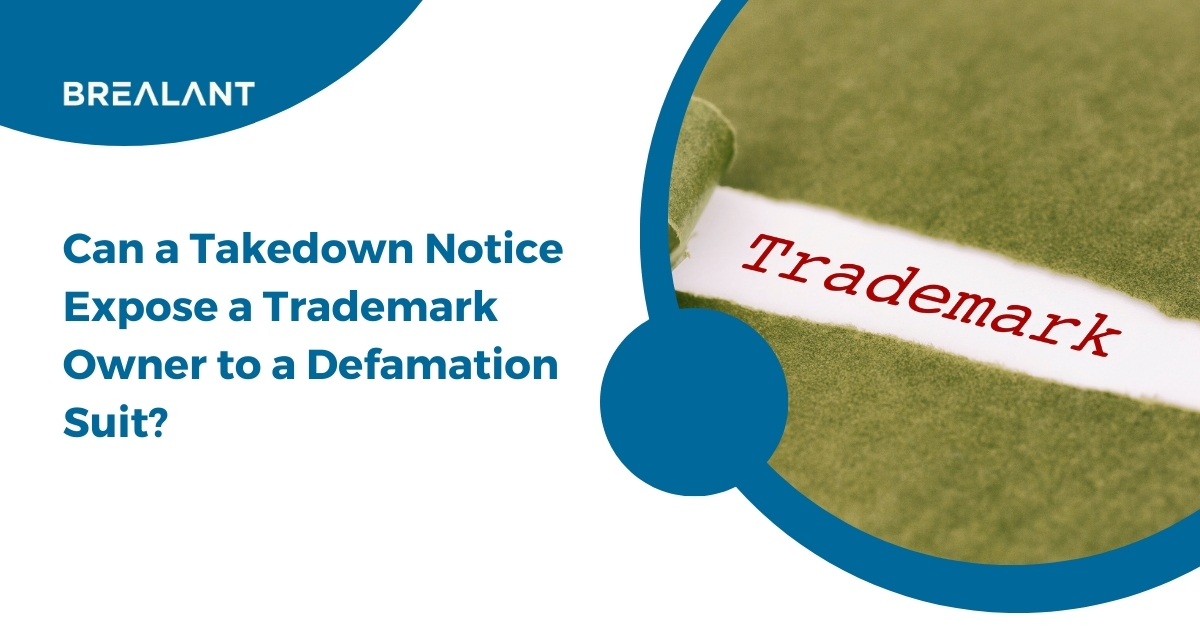In the ever-evolving landscape of intellectual property (IP) law, the intersection of trademark rights and online content has become a battleground for legal disputes. One area that has garnered attention is the issuance of takedown notices, particularly in the context of alleged trademark infringement. While these notices serve as a mechanism to protect intellectual property, the question arises: Can a takedown notice expose a trademark owner to a defamation suit?
Understanding Takedown Notices
Takedown notices, commonly associated with the Digital Millennium Copyright Act (DMCA), are a means for copyright and trademark owners to request the removal of infringing content from online platforms. While they play a crucial role in protecting the rights of intellectual property owners, their misuse can have serious consequences.
The Defamation Dilemma
Defamation, broadly defined as the communication of false statements that harm an individual’s or entity’s reputation, can be a powerful legal weapon. When a trademark owner issues a takedown notice based on false or misleading information, it raises the specter of potential defamation claims. One must delve into the elements that constitute defamation to understand this dilemma.
Elements of Defamation
Defamation typically requires the following elements to be proven:
- False Statement: The existence of a false statement that damages the subject’s reputation.
- Publication: The false statement must be communicated to a third party, either orally or in writing.
- Fault: Depending on the jurisdiction, the plaintiff may need to prove that the false statement was made with a certain level of fault, such as negligence or actual malice.
- Damage: The false statement must result in actual harm to the reputation of the subject.
Takedown Notices and Defamation
When trademark owners issue a takedown notice, they claim that the targeted content infringes upon their intellectual property rights. However, if the information in the takedown notice is false or misleading, it may satisfy the elements of defamation.
For instance, if a trademark owner exaggerates the extent of infringement, makes false statements about the alleged infringer, or fails to conduct a reasonable investigation before issuing the notice, they could potentially expose themselves to a defamation claim.
Legal Precedents
Several legal cases have explored the relationship between takedown notices and defamation. Courts have generally been cautious in balancing protecting intellectual property rights and preventing the misuse of takedown notices to stifle legitimate expression.
In the landmark case of Online Policy Group v. Diebold, a court held that the misuse of the DMCA’s takedown provisions could give rise to liability, including potential liability for defamation. This decision emphasized the importance of good faith in issuing takedown notices and the consequences of making false statements.
Conclusion
As the digital landscape evolves, the delicate balance between protecting trademark rights and avoiding defamation claims becomes increasingly essential. Trademark owners must exercise caution and diligence when issuing takedown notices, ensuring the information provided is accurate and truthful. Navigating the legal complexities of these issues requires the expertise of a reputable IP law firm, and we stands ready to provide unparalleled legal support in the ever-changing world of intellectual property law.
Navigating the complex terrain of intellectual property law, especially in the context of takedown notices and defamation, requires the expertise of seasoned professionals. Brealant Inc., a leading IP law firm, stands out as a beacon of excellence in providing comprehensive legal services.
With a team of experienced attorneys specializing in intellectual property law, we are dedicated to protecting the rights of its clients while ensuring legal compliance. Whether you are a trademark owner seeking to enforce your rights or an individual facing the consequences of a wrongful takedown notice, We offer strategic legal counsel tailored to your specific needs.

